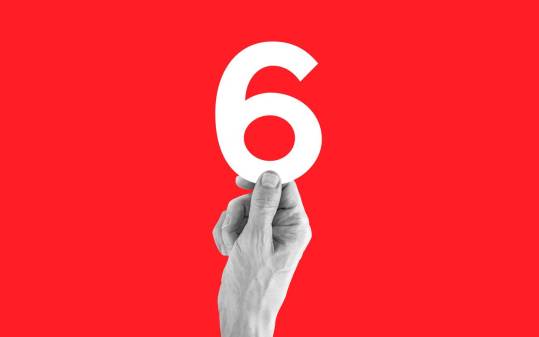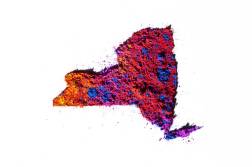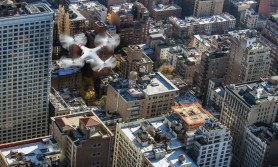ACLU calls for limits on law enforcement drone use

In response to proposed rules that would expand how and where drones can be flown, the American Civil Liberties Union is calling for more limits on how law enforcement can use the unmanned aircraft to monitor public gatherings.
A new paper from the human rights group published last week, titled “Curbs Needed on Police Drone Surveillance of Public Gatherings,” follows plans announced last summer by the New York City Police Department to use drones to respond to complaints about backyard parties during Labor Day Weekend. The paper was also a response to the Federal Aviation Administration’s consideration of new rules that would allow drones to be flown beyond the visual-line-of-sight of drone operators — also known as BVLOS flights, which are currently only allowed by drone operators who have obtained a special FAA waiver.
While the aerial monitoring of gatherings is not new, the ACLU warns that the combination of the FAA’s inquiry and increasing use of drones by law enforcement to monitor public gatherings — such as parades, concerts, festivals and political marches and rallies — should renew concern about government privacy and surveillance.
Jay Stanley, a senior policy analyst with the ACLU’s Speech, Privacy and Technology Project, authored the recent paper and another published last year that examined the practice of deploying drones in response to 911 calls, known as “drones as first responders,” or DFR, programs. Stanley said if the FAA loosens restrictions on BVLOS flights, law enforcement agencies must ensure their drone usage guidelines don’t allow routine aerial surveillance of public and private places.
“We don’t want our communities to have police drones overheads constantly, and that can come about different ways, but one of them is that these ‘drones as first responder’ aircraft are just constantly in the air, on their way to and from all kinds of things, and people end up just feeling like the police are overhead watching them all the time,” Stanley told StateScoop.
But Stanley said he’s also concerned by seemingly innocuous uses, such as drones that can drop flotation devices to ocean swimmers or monitor shark activity, because they can lead to unintentional surveillance.
“Using drones to bring a flotation device out to a distressed swimmer sounds like an excellent use of the technology and doesn’t really raise any issues,” he said. “But if you have drones on patrol, that raises more issues because they’re not only engaged in rescues, but they’re also just watching.”
Stanley’s paper makes several recommendations to law enforcement, including limiting drone operations over gatherings according to factors such as the event’s size, likelihood of disorder, the free speech sensitivity of an event and how community members may feel about the presence of drones there. It also recommends limiting aerial video recording except to gather evidence of a specific instance of violence or other criminal behaviors, as well as limiting how law enforcement can use, share and retain any video that is collected where no illegal activity is taking place.
Many law enforcement agencies have limited their drone operations and published drone patrol guide procedures. But most state action — including in Arkansas, Florida, Mississippi and Tennessee — has been limited to banning or restricting the use of foreign-made drones, not restricting how the vehicles can be used.
Connecticut last month joined that list of states with the introduction of Senate Bill 3. It has drawn criticism from several first-responder groups, including the Connecticut Association of Chiefs of Police, that claim the proposed ban would disband active drone programs that rely on Chinese-made drones.
Stanley said the ACLU does not take a position on the issue of banning foreign-made drones, but recommended that law enforcement agencies consider the constitutional concerns of using drone technology and where their guidance could use reevaluation.
“The recording of people by police can be a very aggressive act. It can be an intimidating act for a lot of people,” he said. “Even if you’re somebody who is perfectly happy to have the police with a camera in your face or over your over your head, there are a lot of people who will be chilled by that. And nobody should want to live in a country where people don’t feel completely free to express their views.”






